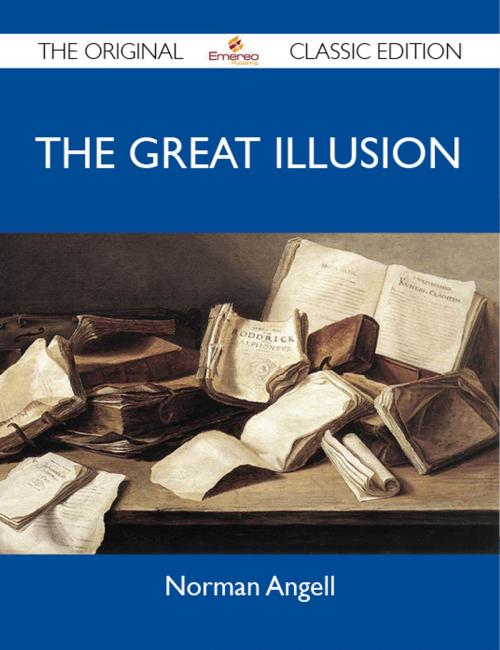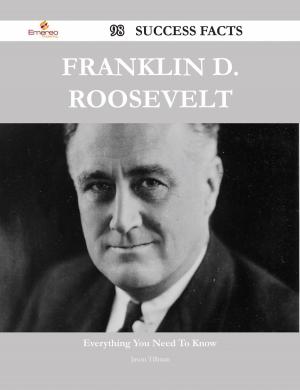The Great Illusion - The Original Classic Edition
Nonfiction, Reference & Language, Reference, Fiction & Literature| Author: | Angell Norman | ISBN: | 9781486412921 |
| Publisher: | Emereo Publishing | Publication: | October 24, 2012 |
| Imprint: | Emereo Publishing | Language: | English |
| Author: | Angell Norman |
| ISBN: | 9781486412921 |
| Publisher: | Emereo Publishing |
| Publication: | October 24, 2012 |
| Imprint: | Emereo Publishing |
| Language: | English |
According to John Keegan Europe in the summer of 1914 enjoyed a peaceful productivity so dependent on international exchange and co-operation that a belief in the impossibility of a general war seemed the most conventional of wisdoms. In 1910 an analysis of prevailing economic interdependence, The Great Illusion, had become a best-seller; its author Norman Angell had demonstrated, to the satisfaction of almost all informed opinion, that the disruption of international credit inevitably to be caused by war would either deter its outbreak or bring it speedily to an end.
The Great Illusion of the title was the belief that there would soon be another major and destructive European war. At the time it was published, there was a naval arms race between Germany and the United Kingdom, and there had been a vogue in Britain for novels imagining a future German invasion (for example, Erskine Childers The Riddle of the Sands (1903) or William LeQueuxs The Invasion of 1910 (1906)). After Angells book appeared, the flood of invasion stories stopped[citation needed] (one of the last was P. G. Wodehouses 1909 parody The Swoop! or, How Clarence Saved England).
In 1914, Angells theory was proved wrong by the outbreak of the Great War, which lasted for four years.
However, the book was updated and a new edition was published in 1933. In this version, Angell changed his initial argument slightly, he no longer proposed that economics would stop a war, or prevent its happening, but instead challenged that waging a war for economic reasons was a futile struggle, that a nation cannot enrich itself by a conquest of its neighbors.
This new thesis earned him the Nobel Peace Prize in 1933, and the economic state of Europe in the interwar era, as well as the Post War era, seemed to bring a new validity to his work.
According to John Keegan Europe in the summer of 1914 enjoyed a peaceful productivity so dependent on international exchange and co-operation that a belief in the impossibility of a general war seemed the most conventional of wisdoms. In 1910 an analysis of prevailing economic interdependence, The Great Illusion, had become a best-seller; its author Norman Angell had demonstrated, to the satisfaction of almost all informed opinion, that the disruption of international credit inevitably to be caused by war would either deter its outbreak or bring it speedily to an end.
The Great Illusion of the title was the belief that there would soon be another major and destructive European war. At the time it was published, there was a naval arms race between Germany and the United Kingdom, and there had been a vogue in Britain for novels imagining a future German invasion (for example, Erskine Childers The Riddle of the Sands (1903) or William LeQueuxs The Invasion of 1910 (1906)). After Angells book appeared, the flood of invasion stories stopped[citation needed] (one of the last was P. G. Wodehouses 1909 parody The Swoop! or, How Clarence Saved England).
In 1914, Angells theory was proved wrong by the outbreak of the Great War, which lasted for four years.
However, the book was updated and a new edition was published in 1933. In this version, Angell changed his initial argument slightly, he no longer proposed that economics would stop a war, or prevent its happening, but instead challenged that waging a war for economic reasons was a futile struggle, that a nation cannot enrich itself by a conquest of its neighbors.
This new thesis earned him the Nobel Peace Prize in 1933, and the economic state of Europe in the interwar era, as well as the Post War era, seemed to bring a new validity to his work.















